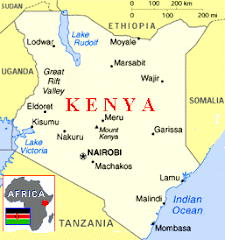Even if the latest health scare fizzes, we still need to prepare for a global calamity.
 Nothing inspires horror more than a plague. The ancient Greek historian Thuycidides gives a horrifying description of Athens in the grip of the epidemic which killed Pericles and perhaps one-third of the population. And in more recent times Liberty City in the video game Grand Auto Theft appears to be plague-stricken. When bubonic plague hit the Indian city of Surat in 1994, 300,000 fled, spreading chaos throughout India.
Nothing inspires horror more than a plague. The ancient Greek historian Thuycidides gives a horrifying description of Athens in the grip of the epidemic which killed Pericles and perhaps one-third of the population. And in more recent times Liberty City in the video game Grand Auto Theft appears to be plague-stricken. When bubonic plague hit the Indian city of Surat in 1994, 300,000 fled, spreading chaos throughout India.
Just as earthquake aficionados speak of the "Big One"in southern California, doctors fear that a "Big One" will decimate the planet. A 2006 study in the British medical journal The Lancet estimated that the next global influenza pandemic would kill 62 million people, with 96% of those deaths occurring in low-income and middle-income settings. Displaced populations, such as refugees, would be especially at risk.
Is swine flu the Big One? Almost certainly not, as it seems much milder than first feared. Nonetheless, thanks to air travel, the viral disease has spread with incredible rapidity and cases have been reported in around the world -- a sobering reminder of how vulnerable we are. Public health experts recall the 1918-1919 flu epidemic. That killed at least 40 million people around the world, and possibly as many as 100 million.
Epidemics present governments, hospitals and doctors with a number of tough ethical dilemmas. Here are some which have emerged from the latest global scare:
• Vaccines may need to be rationed. The global capacity for manufacturing vaccines is limited. Even with the latest technology, according to The Economist, drug companies could only make enough to cover 10 percent of the world’s population. Only nine countries, most of them in Europe, have enough capacity to supply even their own population. What about people in the developing world? The last time there was a swine flu outbreak in the US, back in 1976, the government even banned the export of the vaccine.
• Will there be enough ventilators to help seriously ill patients breathe? If hospitals are inundated they may not have enough machines or doctors qualified to run them. It may be necessary to remove patients who won’t survive to save patients who probably will. And if two patients have an equal chance of survival, who gets the machine? The younger one? The non-smoker?
Guidelines worked out last year in New York State recommend that decisions like these should be made by "triage officers" rather than the doctors and nurses who are treating the patients. Otherwise the stress could be corrosive. They also recommended excluding people who have bad hearts, metastatic cancer with a poor prognosis, or end-stage organ failure.
• Governments are capable of using public health as a smokescreen for repression. The Egyptian government, for instance, has ordered the destruction of the 300,000 pigs in the country. It did this even though no Egyptians were ill and there was no proof that the disease is transmitted by pigs. But pig owners in the largely Muslim country are overwhelmingly Coptic Christians. According to the New York Times, the Christians see this as another expression of Muslim hostility.
• The weightiest decision will be whether to forcibly isolate and quarantine suspected cases. During the 1918 epidemic, Americans tended to stay home rather than risk infecting others. But will a less conformist generation be as cooperative? "The outbreak of severe acute respiratory syndrome (SARS) in southeast Asia and the deliberate release of anthrax in the USA have shown that modern societies do not take kindly to outbreaks of infectious disease and they are prone to panic very quickly," a scientist observed after the SARS epidemic in the journal Lancet Infectious Diseases.
At the moment, according to guidelines from the US Centers for Disease Control and Prevention, mandatory quarantine measures for Americans kick in only when the case fatality rate rises above 1%. But this means that a million people would have to die before public health authorities are given police powers. That seems absurd.
• Should healthcare workers be forced to care for patients? During the 2003SARS epidemic, a number of healthcare workers were infected. The Italian doctor who identified the virus died. Do they have a right to withhold their services to protect their own lives and their own families? Or should they soldier on?
• How harshly should other measures be enforced? Should people be arrested or fined for not wearing masks, for not closing schools, or for not accepting social distancing measures? Even The Lancet this week was wagging the finger at sniffling readers. "Every member of the public has a part to play in limiting the risk of a full-blown pandemic. Vigilance, and not alarm, is needed, with readiness to self-isolate oneself at home if an influenza-like illness develops."
Governments will have to balance competing values – autonomy, civil liberties, transparency, due process and capacity to harm. There is a great danger of harsh and heavy-handed application of preventative measures by over-zealous bureaucracies. Remember Operation Clean Sweep in Outbreak, the 1994 Hollywood thriller about an Ebola-like virus? Gung-ho military types nearly obliterate an infected town with a huge fireball to save the rest of America.
• A related problem is stigmatisation. Mexicans have typecast as “Typhoid Marys” and subjected to humiliating treatment, even by other Latin American countries. The worst incidents happened in China where dozens of healthy people with Mexican passports were detained and isolated. The disease may not even have originated in Mexico; California and Pakistan have been mentioned in the media as possible sources. It’s human nature, of course, to link diseases with foreigners, and governments need to combat it. Apparently cars from Mexico City were stoned in the state of Guerrero, as locals feared that they were carrying the contagion.
• How much money should be spent on creating a flu vaccine? With limited manufacturing capacity, would the money be better spent on combatting the normal winter flu – which also kills people -– or in designing a new vaccine which might not work?
• And – not the most pressing issue, to be sure -- what is the name of the disease? The Deputy Health Minister of Israel has announced that swine influenza A (H1N1) will be called "Mexico Flu" rather than swine flu as pigs are not kosher. Names are always political.
Epidemics bring out the worst – and the best – in people. Our time to confront "the Big One" might not have arrived, but we need to prepare our ethics as well as our vaccines.
By: Michael Cook is editor of MercatorNet




No comments:
Post a Comment